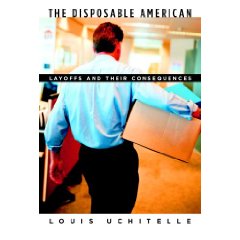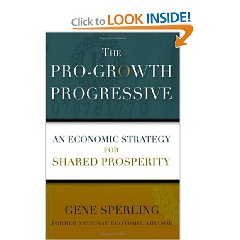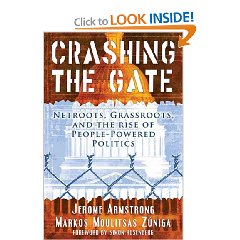
![]()
I had no idea while I was at CIA as a clandestine officer that there are really multiple CIA's and that there are three *external* CIAS: the “Safari Club” led by Saudi Arabia, with France, Egypt, Morocco and Iran (during the Shah's time, not since); the murder network (South Africa, Israel, South Korea, and probably also Chile and Argentina during their worst years); and a privatized CIA running drugs and arms, laundering money, and generally doing things that were “off the books and out of control” as the author titles one of his chapters.
According to the author, Allen Dulles has the first private intelligence service at 44 Wall Street, relying heavily on the recruitment of former Nazis. There is a direct path from the CIA's fascination with former Nazis to the presence of Karl Rove in the White House.
The author draws on good sources to document the long-time relationship between Wall Street and certain companies such as the house of Morgan and Brown that leads us right up to when Buzzy Kronguard, formerly of Alex Brown, was executive director of the CIA at no salary. Prescott Bush, farther of the first President Bush, features heavily in the corrupt relations between CIA and the Wall Street mafia. These people financed the Nazis and weapons that killed Americans.
Interestingly, the Dutch are known to have all the details on the Bush family ties to the Nazis, and I have personally heard from the Dutch that they also have full details from the Chinese on drunken teen-ager George W. Bush, of whom photos are said to exist while he is incoherent and perhaps posed in naked compromising positions with his male Chinese tennis teacher). All of this is inevitably going to be in the public consciousness–right now it falls into what one author calls “Fog Facts”–known openly but not “computed” by the public.
This entire book is a tale of the corruption of intelligence, caused in part by the abysmal failure of US intelligence in the early years, ranging from failing to predict the Korean invasion to trying to assassinate Chinese premier Chou En Lai.
The Viet-Nam era empowered people like Ted Shackley (who died in 2002 and whose memoirs are coming out shortly). CIA learned to run drugs and arms, launder money, start its own banks, and generally avoid Congressional funding limitations and Congressional oversight. Unfortunately, creating a rogue CIA further incapacitated “CIA proper” of which I was a part, and the author reasonably points out that the fall of the Shah of Iran, the failure to understand the 1975 concerns about Shiite terrorism training camps, the assassination of Sadat, the CIA coup plans that were pre-empted by Qadafi, the growth of Al Qaeda, the fall of Afghanistan to the Taliban (which deprived Wall Street of its drug crops, now restored courtesy of the U.S. Army)–the list goes on.
According to the author's sources, the CIA opened the Far East to the US mafia, and helped develop pipelines for the drugs that included piggy-backing on US servicemen corpses coming back into Dover AFP. Fast forward to CIA using Special Operations Forces to protect transmitters that allowed hundreds of drug airplanes to land in Panama where drugs could be traded for money and arms.
The author centers the book on Ted Shackley as a bridge figure among many “external” intelligence activities, but Clark Clifford is also key in the founding of the BCCI bank and in asking the Saudis directly to fund an alternative CIA to be known as the Safari Club. BCCI had overtly good intentions–to attract terrorist and criminal funds, but at root it represented the complete “sale” of US intelligence to the Saudis.
The politicization of intelligence is the other major theme in this book, and the Bush family features very prominently.
Side notes:
Ted Shackley recruited Zbigniew Brzezinski as a young Polish-American student, and had full access to him later when he was National Security Advisor.
Don Rumsfeld, today Secretary of Defense, was instrumental in persuading President Ford not to appoint Eliot Richardson, a reformer of known integrity, to the DCI position, and instead got Kissinger to invite Bush from Beijing, all to ensure that Kissinger's role in subverting Chile would be concealed.
As DCI, Turner shut the Israeli's out, essentially forcing them to adopt Shackley as their “black CIA” partner, and then Bush as DCI turned CIA over to the Saudi government.
Shackley fought Inman for the soul of CIA, and the evidence suggests that Shackley won, in part by blackmailing Inman in collaboration with the Israel lobby.
CIA placed officers under cover on the Hill, notably in Senator Dan Quayle's office.
The book left me with three thoughts for reflection:
1) 9-11 was the culmination of decades of CIA corruption and politicization. Of course there are other factors, but from 1975 forward CIA “sold out” and it can be safely said that Viet-Nam killed CIA and opened the doors to the privatization of dirty tricks, murders, and generally very bad out of control covert foreign policy and a consequent subversion of national security.
2) Cheap oil resulting from our support of ruthless dictators set the stage for the radicalization of the Muslim world against America. People are not stupid–they see the link between the US situation, US support for dictators, and their own suffering and exclusion from the wealth.
3) One day, someday, I am going to fund an ABLE DANGER analysis of the history of secret intelligence, starting with Richard Secord, who is in charge of GRAY FOX (the successor to YELLOW FRUIT) and who is not killing terrorists, which is what he is supposed to be doing, but instead continuing the for-profit external CIA, and Ted Shackley.
This is an important book.








